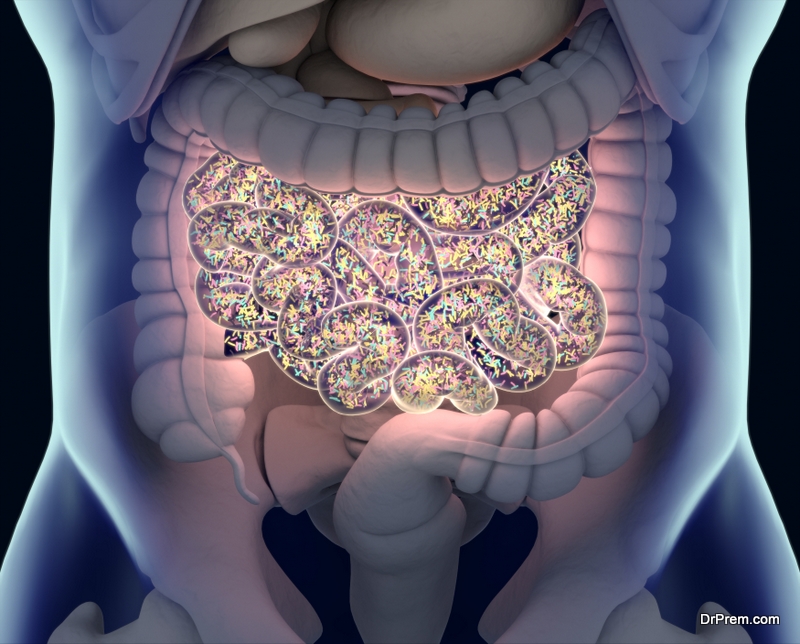Gut toxicity, also known as leaky gut, is a very dangerous condition affecting thousands of people in the United States. Leaky gut is one of countless gastrointestinal issues that share similar symptoms, making it difficult to diagnose. This article explains exactly what gut toxicity is; warning signs you might have it, and how to treat it.
What is Gut Toxicity?
Gut toxicity is known as leaky gut, or intestinal permeability, because of what causes it. This condition occurs when the small intestine becomes damaged. This allowed undigested food and other toxic waste particles and bacteria to leak out of the intestines and into the bloodstream. This can cause a long list of health complications. Several things can cause damage to your small intestine including type 1 diabetes, celiac disease, and other chronic diseases. When the cells of the small intestine are damaged, they fail to produce enough enzymes to support proper digestion. This leads to malnutrition, hormonal imbalances and a compromised immune system. Poor diet is another common cause of gut toxicity.
Symptoms of Leaky Gut

Now that you understand what leaky gut is, let’s discuss some symptoms. These symptoms can be hard to identify and diagnose as gut toxicity because they’re the same symptoms seen in other gastrointestinal conditions. But any of these symptoms could be a sign you are suffering from gut toxicity.
- Chronic diarrhea
- Gas
- Bloating
- Constipation
- Compromised immune system
- Extreme fatigue
- Skin conditions including rash, acne, or eczema
- Headaches
- Confusion or memory loss
- Arthritis
- Cravings for certain foods (carbs and sugars)
If you’re experiencing any of these symptoms, you may have gut toxicity and should seek medical attention.
How to Treat Gut Toxicity
After you’ve been diagnosed with leaky gut, you and your doctor will create an action plan for treatment. Here are a few ways that you can treat and recover from this condition.
Change Your Diet
 A poor diet is one of the main causes of leaky gut. When you eat foods containing anti-nutrients, your body struggles to digest them, creating holes in your intestinal lining. Here are some of the most common foods that can cause gut toxicity:
A poor diet is one of the main causes of leaky gut. When you eat foods containing anti-nutrients, your body struggles to digest them, creating holes in your intestinal lining. Here are some of the most common foods that can cause gut toxicity:
- Grains (primarily ones that contain gluten)
- Sugar (specifically refined sugars)
- Milk
- Processed meats
- Sauces and dressings
- Alcohol
By removing these items (and more) from your diet, you can reduce your risk for intestinal damage. In addition, adding certain foods like those listed below may actually help improve your condition.
- Vegetables (broccoli, kale, eggplant, mushrooms, zucchini)
- Fruits (grapes, berries, lemons, limes, oranges, kiwi, pineapple)
- Roots (potatoes, carrots, turnips)
- Healthy fats (avocado)
- Sprouted seeds (flax seed, chia seeds)
- Fish (salmon, tuna, other fish high in omega-3 fatty acids)
- Herbs and spices
- Fermented vegetables (sauerkraut, miso)
- Raw nuts (peanuts, almonds, nut milks)
- Beverages (tea, bone broth, water)
These foods are all part of a healthy, balanced diet. Including them in your daily routine can prevent gut toxicity and promote overall gut health.
Reduce Stress
Chronic stress can cause countless complications in your body including weight gain, high blood pressure, heart disease, and weight gain, just to name a few. A certain level of stress in the body is actually healthy. It’s the part of our brain that initiates the “flight or fight” response. During stressful times, your body releases a chemical known as cortisol. Too much cortisol in the body causes health complications, including leaky gut. Stress affects other hormones in the body as well and hormone imbalance is another culprit associated with gut health. Reducing stress and regulating your hormone levels are two ways to treat gut toxicity. Not to mention, excessive stress causes inflammation. Your body focuses on healing this before anything else, meaning your gut health is compromised.
Practicing stress management techniques can promote a healthy, happy digestive system. Things like meditation, yoga, mindfulness, and taking mental and physical breaks when needed can all reduce stress. Understanding your triggers for stress and avoiding those triggers is also recommended.
Get Plenty of Sleep
 The average adult should get between 7 and 8 hours of sleep per night. Sadly, this rarely happens. Thousands of people suffer from insomnia, disturbed sleep, or other sleep conditions. When you don’t get enough sleep, your body can’t work at optimum levels. You may feel disorientated, unable to focus, lethargic, and have a weakened immune system. Not getting adequate rest can also compromise your gut health and could cause leaky gut. Sleep is the time when your body rests and recovers. Without quality sleep, your overall gut health is at risk. You may experience the inability to digest foods, gas, diarrhea, or constipation — all possible symptoms of gut toxicity.
The average adult should get between 7 and 8 hours of sleep per night. Sadly, this rarely happens. Thousands of people suffer from insomnia, disturbed sleep, or other sleep conditions. When you don’t get enough sleep, your body can’t work at optimum levels. You may feel disorientated, unable to focus, lethargic, and have a weakened immune system. Not getting adequate rest can also compromise your gut health and could cause leaky gut. Sleep is the time when your body rests and recovers. Without quality sleep, your overall gut health is at risk. You may experience the inability to digest foods, gas, diarrhea, or constipation — all possible symptoms of gut toxicity.
Take a Supplement
You already know that diet plays an important role in promoting a healthy digestive system and reducing your risk of leaky gut. But you can’t always get the important vitamins and nutrients you need through diet alone. Taking a probiotic supplement can help provide you the essential ingredients you need for proper digestion. Not only do supplements promote health but they actually offer healing properties for those already suffering from gut toxicity. Popular supplements like L-glutamine, fish oil, and probiotics, are all effective. All of these supplements have anti-inflammatory properties and help to heal, maintain, and even rebuild digestive lining.
Testing for Gut Toxicity
 Now that you know the warning signs and symptoms of this condition, plus steps for healing leaky gut, let’s discuss diagnosis. If you think you’re suffering from gut toxicity, your doctor can run several tests to confirm. Surprisingly, neither a colonoscopy or endoscopy can detect leaky gut. Doctors will use several other tests, including:
Now that you know the warning signs and symptoms of this condition, plus steps for healing leaky gut, let’s discuss diagnosis. If you think you’re suffering from gut toxicity, your doctor can run several tests to confirm. Surprisingly, neither a colonoscopy or endoscopy can detect leaky gut. Doctors will use several other tests, including:
- Urine test
- Stool test and digestive analysis
- Parasite test
- Food allergy test
- Bacterial dysbiosis test
Test results can take several days, but once the results are in, you and your doctor can start a treatment plan. In the meantime, you can easily adjust your diet and lifestyle to improve symptoms.
Conclusion
Promoting a healthy, happy digestive system means investing in your overall health and well-being. The good news is, treating leaky gut is relatively easy and will improve other aspects of your life as well.
Article Submitted By Community Writer




